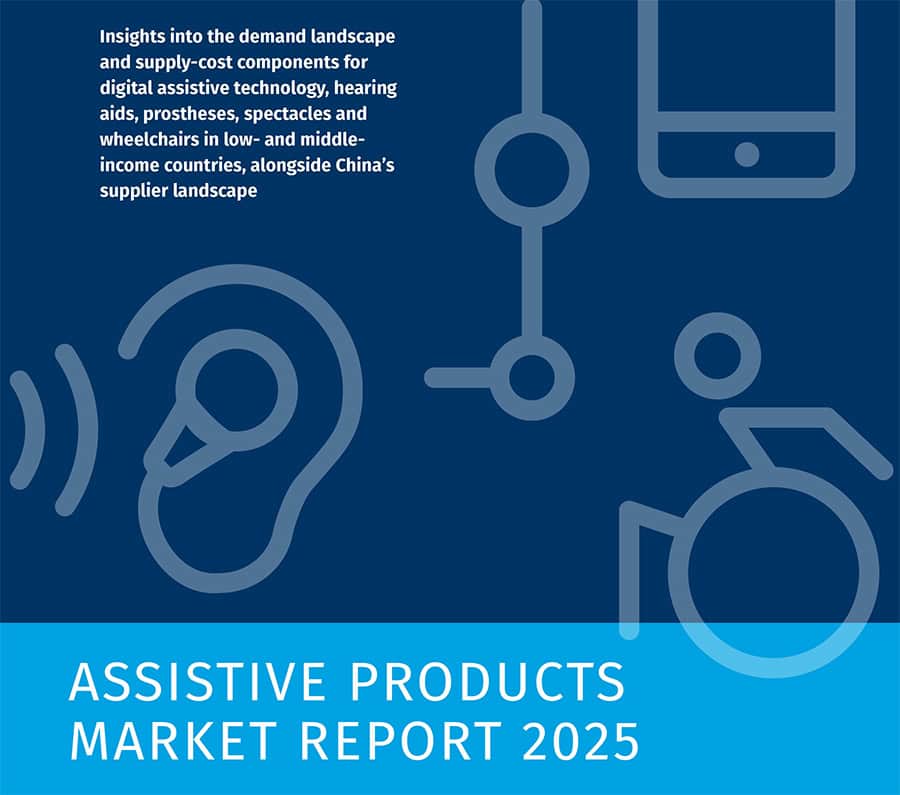A new report by ATscale and the Clinton Health Access Initiative, projects the global assistive technology (AT) market will reach an estimated US$26 to US$31 billion, doubling its value in just nine years.
However, the report, ‘Assistive Products Market Report 2025’, starkly reveals that over one billion people worldwide still lack access to the assistive products they critically need, with a majority residing in low- and middle-income countries (LMICs).
This unmet need is estimated to be 10 times larger than the current demand in these regions, highlighting an acute market failure.
“This report moves beyond describing the current landscape to offering practical solutions for addressing unmet needs,” stated Pascal Bijleveld, CEO of ATscale. “It underscores the urgent need for a coordinated global effort to dismantle market barriers and ensure assistive technology reaches everyone who can benefit from it.”
The report provides an in-depth analysis of the demand landscape, supply chain costs, and emerging innovations within the assistive products sector. It details the significant market gaps, particularly in LMICs, where 65 to 95 percent of those needing products, such as wheelchairs, glasses, hearing aids, and prostheses, remain without access.
The report identifies fragmented procurement, funding shortfalls, market and supply chain barriers, and policy gaps as key impediments to equitable access.
In addition, the report analyses show how the need for assistive products is growing, largely driven by increasing population needs in LMICs due to ageing populations, the rising prevalence of non-communicable diseases, and greater awareness of AT solutions.
However, two out of three users globally still pay out of pocket, with user prices reaching up to six times the ex-factory price. Significant challenges persist in accessing these essential products, the report emphasises.
For instance, import duties on glasses can be as high as 108 percent in some LMICs, and shipping costs can account for 15-40 percent of product expenses, with costs commonly passed on to users. Waiving import tariffs can therefore significantly improve affordability, the report suggests.
The report champions innovative solutions, such as ready-to-assemble prescription glasses and locally manufactured bamboo-frame wheelchairs, alongside strategic recommendations for governments, donors, and buyers to optimise supply chains and reduce costs.
Looking ahead, the report emphasises the importance of enhanced transparency in supply chains, strengthened government policies, and consolidated funding sources to promote efficiency and scale the AT market in LMICs.
“By generating actionable market insights, we can drive evidence-based solutions that expand access to assistive technologies—advancing our mission to unlock the potential of life-changing products for all who need them,” added Frederic Seghers, Senior Director for Assistive Technologies at the Clinton Health Access Initiative.
The 2025 report builds on the 2024 assistive technology market report launched by ATscale and the Clinton Health Access Initiative.
The post Over one billion people globally still lack access to crucial assistive products, report shows appeared first on AT Today – Assistive Technology.

